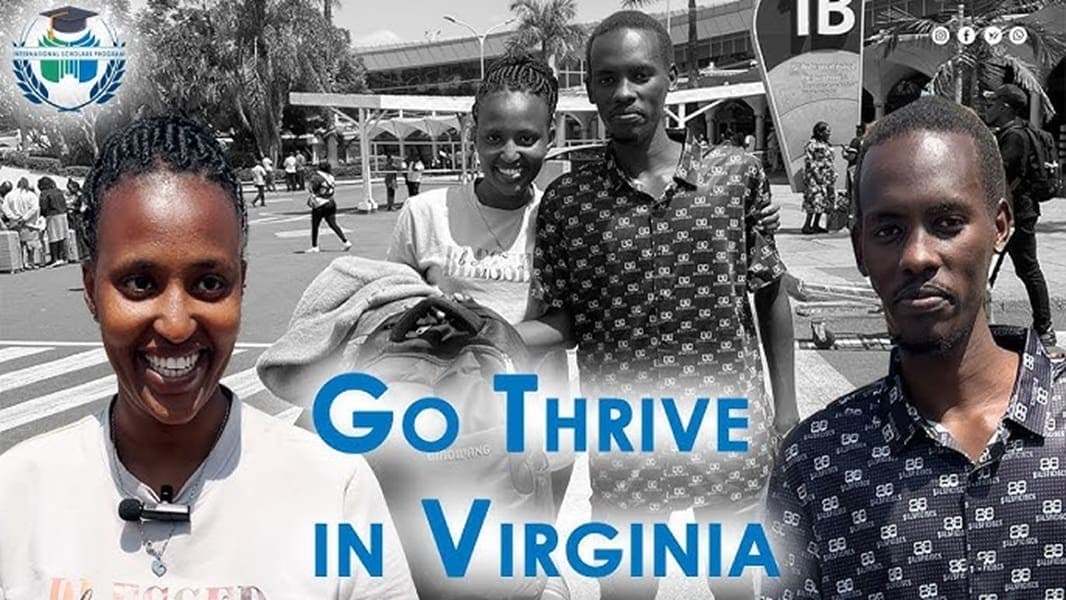We're loading the full news article for you. This includes the article content, images, author information, and related articles.
Andrew Chopika's admission to a prestigious American university highlights a growing wave of Kenyan students pursuing specialized postgraduate degrees abroad, often navigating a complex web of financing and visa hurdles.

NAIROBI, Kenya – As Andrew Chopika from Samburu North began his Master of Science in Molecular and Cell Biology at Quinnipiac University in Connecticut, United States, this week, his achievement casts a light on the aspirations of a growing number of Kenyan scholars seeking advanced education overseas. His journey from a region facing significant educational barriers to a US research institution underscores both individual determination and the broader dynamics of international student mobility.
Mr. Chopika’s success is particularly notable given his origins. Samburu County has historically faced challenges in educational access, including inadequate infrastructure, insecurity, and cultural practices that can deprioritize formal schooling. A 2018 study published in the International Journal of Education and Research identified poverty, nomadic lifestyles, and understaffing in schools as major barriers to education in the county. More recently, in February 2024, the Kenya National Commission on Human Rights reported that escalating insecurity had forced the closure of several schools in the region, further disrupting learning.
Against this backdrop, Chopika’s admission into a competitive STEM (Science, Technology, Engineering, and Mathematics) program in the US is a significant accomplishment. Quinnipiac University's program focuses on advanced biochemistry, molecular genetics, and lab techniques, preparing graduates for roles in biotechnology and research.
Facilitating Mr. Chopika's journey was the International Scholars Program (ISP), an organization that assists students in securing admission and financing for graduate studies in the US and Canada. According to his sister, Anita Mercy, the family was initially wary of the overseas study plan, fearing it could be an online scam—a common concern for many Kenyans. However, she credited the program with providing credible, step-by-step guidance that led to his successful visa approval.
Formerly known as the Kenya Airlift Program, ISP rebranded to serve a broader international audience and states its mission is to help students access STEM graduate programs regardless of their financial background. The organization, which charges a consultation fee, assists with financing for tuition and living expenses. ISP's website states it is accredited by the American International Recruitment Council (AIRC), a body that certifies international student recruitment agencies based on quality and ethical standards.
Mr. Chopika's story is a reflection of a wider trend. According to the 2024 Open Doors report by the Institute of International Education (IIE), a US Department of State-sponsored survey, there were 4,507 students from Kenya at U.S. colleges and universities in the 2023-24 academic year, an 11% increase from the previous year. This places Kenya third among sub-Saharan African nations sending students to the US, behind Nigeria and Ghana.
This ambition, however, faces significant obstacles. Data from 2023 showed that Kenyan students faced a high US student visa refusal rate. Furthermore, a temporary suspension of new visa interview scheduling at US embassies in May 2025 created uncertainty for aspiring students globally, including those in Kenya. A survey by the African Leadership University (ALU) released in February 2025 found that half of Kenyan students aspire to study abroad, citing opportunities for work experience and the availability of scholarships as key drivers.
As Andrew Chopika settles into his new academic life, his path highlights the immense potential within communities like Samburu and the critical role that verified, transparent programs can play in connecting Kenyan talent to global opportunities. His journey serves as both an inspiration and a case study in the complex, hopeful pursuit of international higher education.
Keep the conversation in one place—threads here stay linked to the story and in the forums.
Sign in to start a discussion
Start a conversation about this story and keep it linked here.
Other hot threads
E-sports and Gaming Community in Kenya
Active 9 months ago
The Role of Technology in Modern Agriculture (AgriTech)
Active 9 months ago
Popular Recreational Activities Across Counties
Active 9 months ago
Investing in Youth Sports Development Programs
Active 9 months ago